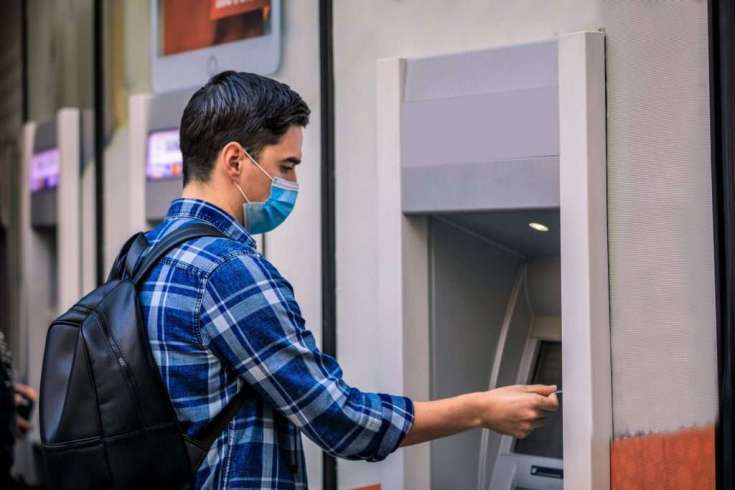
When it comes to banking, fees generally trend in one direction: up. It’s no surprise, then, that a recent survey from Bankrate.com found that a number of banking-related charges have hit record highs this year. Holders of interest-paying checking accounts are paying a higher monthly service fee than ever – $15.50 on average – if their account dips below a certain level, a threshold that is, itself, on average, at a record high: $7,550.
Overdraft fees have hit a new high-water mark as well. Charge more than you have and you’re looking at an average fee of $33.47.
Banking customers have caught a few breaks, though. Because many banks are offering temporary fee waivers related to the Covid-19 pandemic, the average out-of-network ATM fee dropped this year for the first time in a decade and a half to $4.64, an 8-cent decrease. And options abound for folks seeking a free, no-interest checking account. About half of non-interest-paying accounts are considered free these days. That’s the highest level since 2010.
More from Grow:
How much Americans want to have saved to feel ‘comfortable’
3 best wealth-building habits, according to 177 millionaires
How I paid off $102,000 in debt, bought a house and built wealth
Still, no matter which way fees are trending, the bottom line is, you don’t want to pay them. Take a look at the following tips to make sure your bank is holding your money rather than taking it.
‘Look for a free checking account’
When choosing a checking account, your natural inclination may be to opt for one that pays interest over one that doesn’t. “In the lion’s share of cases, it just doesn’t pay,” says Greg McBride, chief financial analyst at Bankrate.com. For one thing, the average interest rate on such accounts is a paltry 0.04%. And to earn that meager yield, McBride points out, account holders have to deal with high account minimums and potential monthly fees nearly three times as high as non-interest-paying accounts.
“Look for a free checking account with no balance requirements and treat it like a gas tank,” McBride says. “Fill it when it’s low, and don’t stockpile money in there. That way, you have the ability to put cash to work rather than stranding it in an account with a high minimum.”
If you’re using an interest-paying checking account, finding a free alternative shouldn’t be tough. In addition to the 47% of no-interest accounts that Bankrate says are free, another 41% will waive monthly fees if you sign up for direct deposit using the account. Switching accounts within your current bank will require less hoop-jumping and is less likely to require you to show up at a brick-and-mortar branch, McBride says.
The ease of switching to a new bank, be it online or brick-and-mortar, will vary, he adds. If you’re shopping checking accounts, look into Bankrate’s comparison tool, which lists accounts in your ZIP code by interest rate, balance to open an account, and balance to avoid fees.
If you’re making the switch to a new bank, make sure you have your documents in order. “Many major financial institutions generally require your Social Security number, name, current residence, and previous bank account information for the first deposit. Some bank accounts may also have age restrictions and require a guardian to open the account,” Dana Marineau, former Credit Karma VP and financial advocate, told Grow.
Video by Jason Armesto
Avoid pesky ATM and overdraft fees
Once you’ve got your accounts in order, many of the banks’ nickel-and-dime fees are “avoidable,” McBride says. “For ATM fees, just like with insurance, it pays to stay in-network,” he says, adding that even though many banks are waiving charges for using out-of-network ATMs, you’ll still pay a surcharge to the owner of the ATM.
“If you’re in a pinch for cash, get cash back at the point-of-sale at the pharmacy or supermarket,” he says.
To avoid overdraft fees, use your bank’s app to keep track of your account, with a focus on your available account balance, rather than the total funds in your account. “The check you deposit yesterday may not be available for withdrawal today,” McBride says.
If you’d rather not keeps tabs on your account, set up automated protection for yourself. Most banks will allow you to enroll in text or email alerts when your account hits a certain level. And linking your banking and checking accounts can be a “great line of defense” against overdrafts, McBride says. “That way, if you slip up and overspend, it’s your money that covers the shortfall, not the bank’s.”
The article “Banking Fees Are on the Rise. Here’s How to Avoid Paying for Them” originally published on Grow+Acorns.


